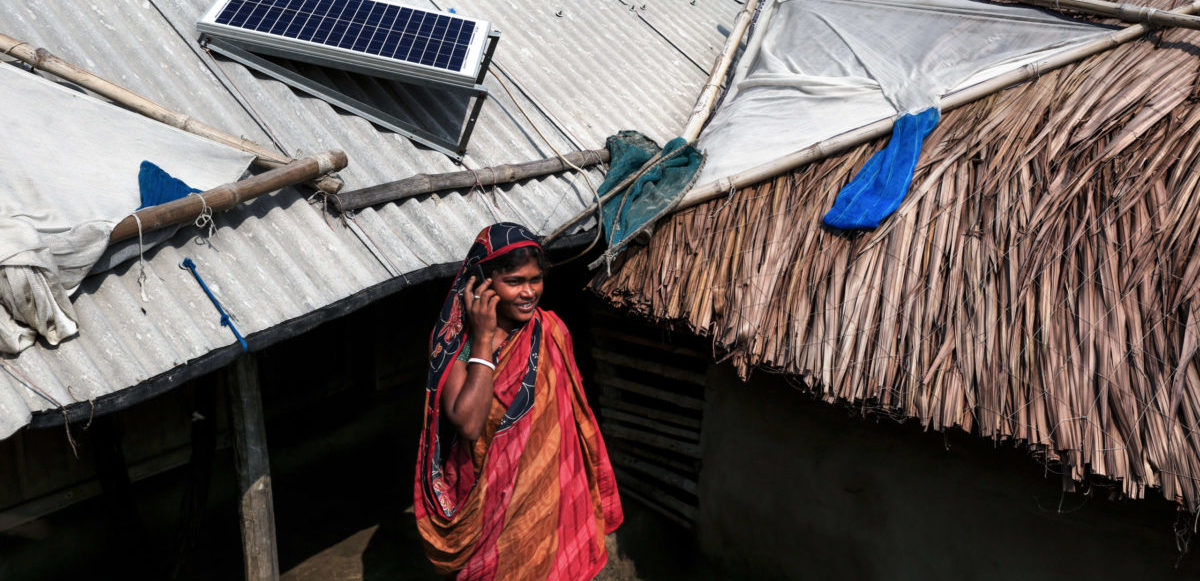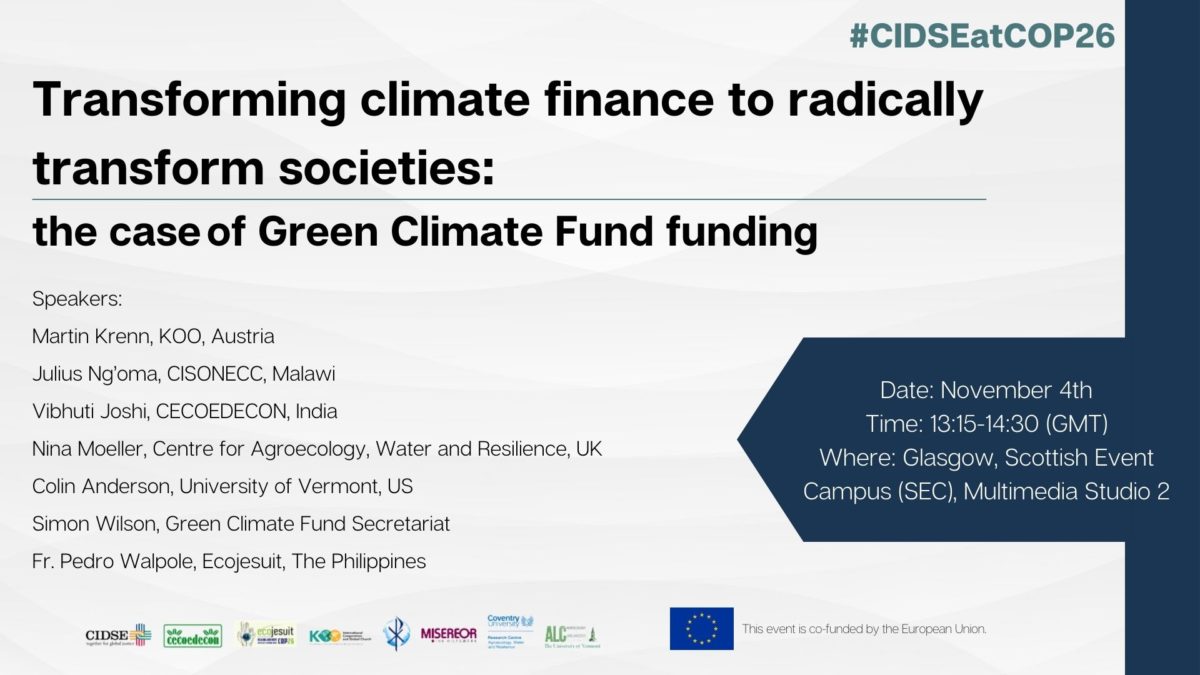Transforming climate finance to radically transform societies: the case of Green Climate Fund funding
#CIDSEatCOP26 – Official side event
WATCH THE RECORDING
How to follow event?
The side event room allocated has very limited capacity and doesn’t allow the entry of participants. You can therefore follow the event via the COP26 platform if you have a COP6 badge for the blue zone, or follow the webcast on the COP26 Side Events YouTube Channel if you don’t have a badge. Please note however that it will not be possible to receive any questions from the YouTube audience. It is only possible to receive questions from those participants joining via the COP 26 platform.
When ? 13:15-14:30 GMT- 14:15-15:30 CET
Language: English
Background
In the context of COVID-19, climate ambition entails not only lowering greenhouse gas emissions, but also recovering effectively by addressing climate impacts, food security, poverty and inequality holistically. Climate change has a direct impact on communities, (small scale) food producers, and civil society organisations (CSOs) operating at the local level in many developing countries. Because they are based on local realities, including the needs and knowledge of local actors, locally-driven, innovative climate-response measures are highly effective in promoting climate adaptation and resilience, ecosystem recovery, low-carbon emissions, and sustainable development. The scaling up of climate finance will be a pressing issue at COP26, with the review of the second commitment period being particularly important. The GCF has committed to becoming a paradigm-shifting and transformative fund for low-emission and climate-resilient development, dedicated solely to climate financing in developing countries, with a focus on both mitigation and adaptation. However, our studies have shown that barriers for CSOs to access GCF funds exist and are systemic, massive. Our studies also show that agroecology receives minimal support from the fund while it is now recognized to be key to food system transformation we dramatically need and to cope with the multiple crises we face. Addressing, reducing and overcoming these barriers as well as increasing the quality of funding for agriculture will be essential for the Fund to fulfil its mission of transformative change-making.
Further information:
See CIDSE study: “Improving civil society’s limited access to the Green Climate Fund” and infographic.
Check also our latest updates at: CIDSE@COP26.
Contact: Lydia Machaka, CIDSE Climate Justice Officer, machaka(at)cidse.org
 This event is co-founded by the European Union. The contents are the sole responsibility of the organisers and can in no way be taken to reflect the views of the European Union.
This event is co-founded by the European Union. The contents are the sole responsibility of the organisers and can in no way be taken to reflect the views of the European Union.


